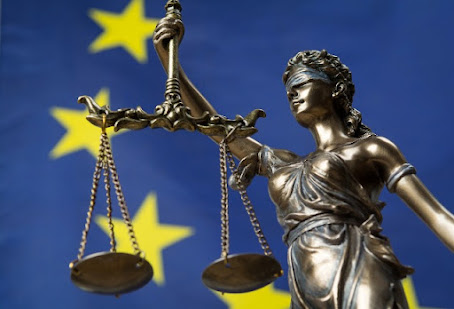Artificial intelligence in justice systems : Αn inevitable revolution is coming
Ιn this matter, the Council of EU[1] notes that the deployment of artificial intelligence systems in the justice sector is already being researched and developed in the EU and that the practical implementation of such systems is already imminent in some Member States. The Council also notes that a sufficient level of digitalisation is also a prerequisite for the use of artificial intelligence applications.
It is also emphasized, that artificial intelligence systems in the justice sector may in the future be capable of performing increasingly complex tasks – within the legal framework of a Member State – such as analysing, structuring and preparing information on the subject matter of cases, automatically transcribing records of oral hearings, offering machine translation, supporting the analysis and evaluation of legal documents and court/tribunal judgments, estimating the chances of success of a lawsuit, automatically anonymising case law and providing information via legal chatbots.
The development of artificial intelligence systems, particularly machine learning systems, depends on the comprehensive availability of large data sets, such as anonymised court/tribunal files and judgments, that are of high quality in relation to the purposes they shall be used for.
It should be emphasized that the use of artificial intelligence in the judiciary will not replace the human factor, ie judges, lawyers and other actors in the judiciary.
According to the Council of EU [2], the use of artificial intelligence tools has the potential to improve the functioning of justice systems for the benefit of citizens and businesses by assisting judges and judicial staff in their activities, accelerating court/tribunal proceedings and helping enhance the comparability, consistency and, ultimately, the quality of judicial decisions.
It is underlined that the use of artificial intelligence tools must not interfere with the decision-making power of judges or judicial independence. A court decision must always be made by a human being and cannot be delegated to an artificial intelligence tool.
Ιn this context, it is emphasized that in certain cases, outcomes of artificial intelligence systems based on machine learning cannot be retraced, leading to a black-box-effect that prevents adequate and necessary responsibility and makes it impossible to check how the result was reached and whether it complies with relevant regulations. This lack of transparency could undermine the possibility of effectively challenging decisions based on such outcomes and may thereby infringe the right to a fair trial and an effective remedy, and limits the areas in which these systems can be legally used.
The use of artificial intelligence in the field of justice should be limited by strict rules and no doubt should be left as to its exact scope. Its use should always safeguard fundamental human rights, such as human dignity, the right to liberty, non-discrimination, protection of privacy and data and the right to a fair trial.
Already in 2018, the European Commission for the Efficiency of Justice (CEPEJ) of the Council of Europe has adopted the five (5) fundamental principles[3] relating to the use of artificial intelligence in judicial systems, which are the following:
- Principle of respect for fundamental rights: ensure that the design and implementation of artificial intelligence tools and services are compatible with fundamental rights.
- Principle of non-discrimination: specifically prevent the development or intensification of any discrimination between individuals or groups of individuals.
- Principle of quality and security: with regard to the processing of judicial decisions and data, use certified sources and intangible data with models elaborated in a multi-disciplinary manner, in a secure technological environment.
- Principle of transparency, impartiality and fairness: make data processing methods accessible and understandable, authorise external audits.
- Principle “under user control”: preclude a prescriptive approach and ensure that users are informed actors and in control of the choices made.
The use of artificial intelligence in the field of justice is in my opinion the next or even one of the next inevitable steps in the new era of judicial systems. I believe that as part of the digitalization of justice, it is also a necessary condition for the survival of a hitherto dysfunctional, bureaucratic, slow and inaccessible judicial system. The proper use of artificial intelligence in the legal field is likely to be the greatest revolution ever happened in the fundamental area of administration of justice.
*George Kazoleas is Lawyer in Greece and Cyprus
___________
[1] Access to justice – seizing the opportunities of digitalisation’ (2020/C 342 I/01) Official Journal of the European Union 14.10.2020
[2] As above
[3] European ethical Charter on the use of Artificial Intelligence in judicial systems and their environment (Adopted at the 31st plenary meeting of the CEPEJ , Strasbourg, 3-4 December 2018)








Comments
Post a Comment